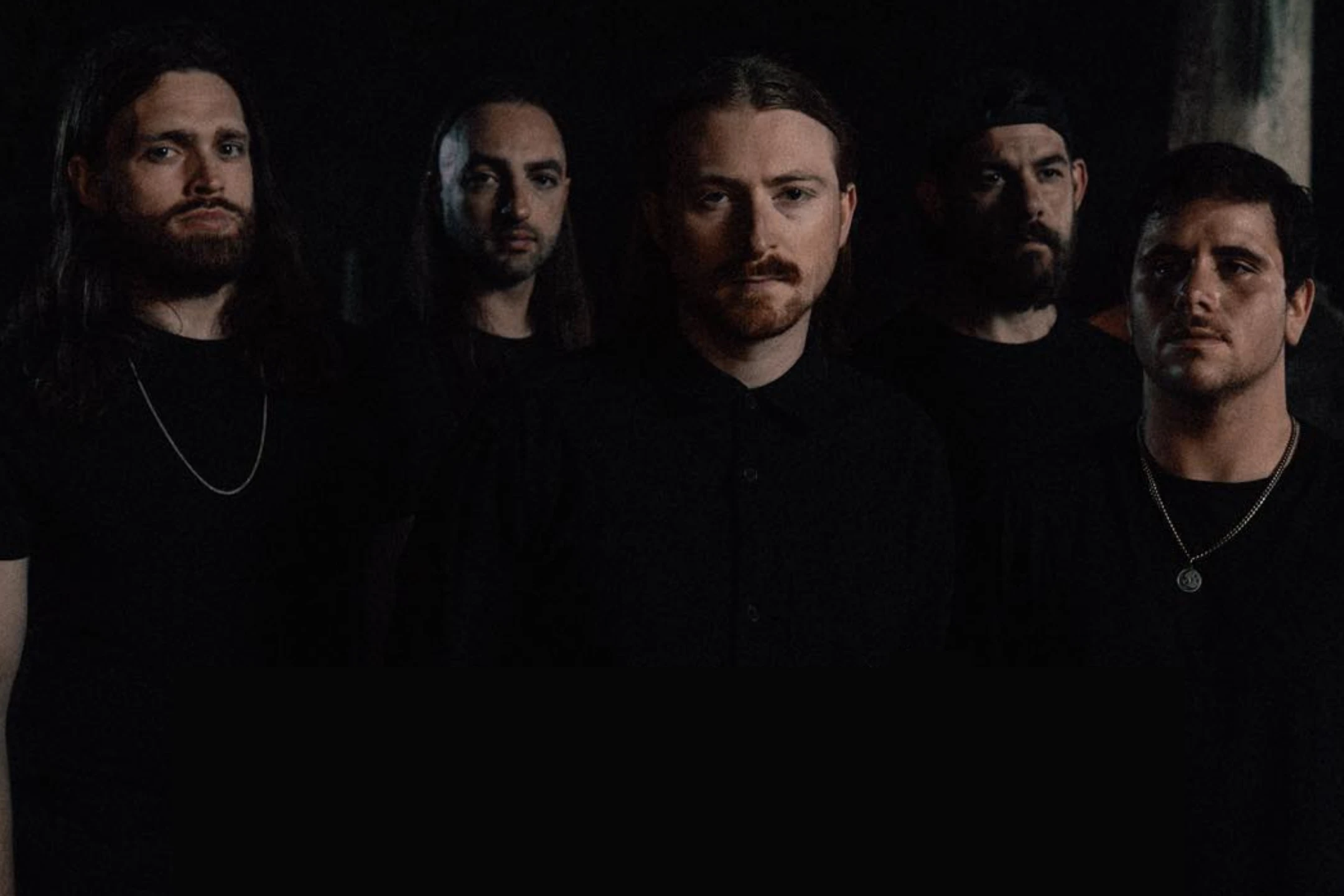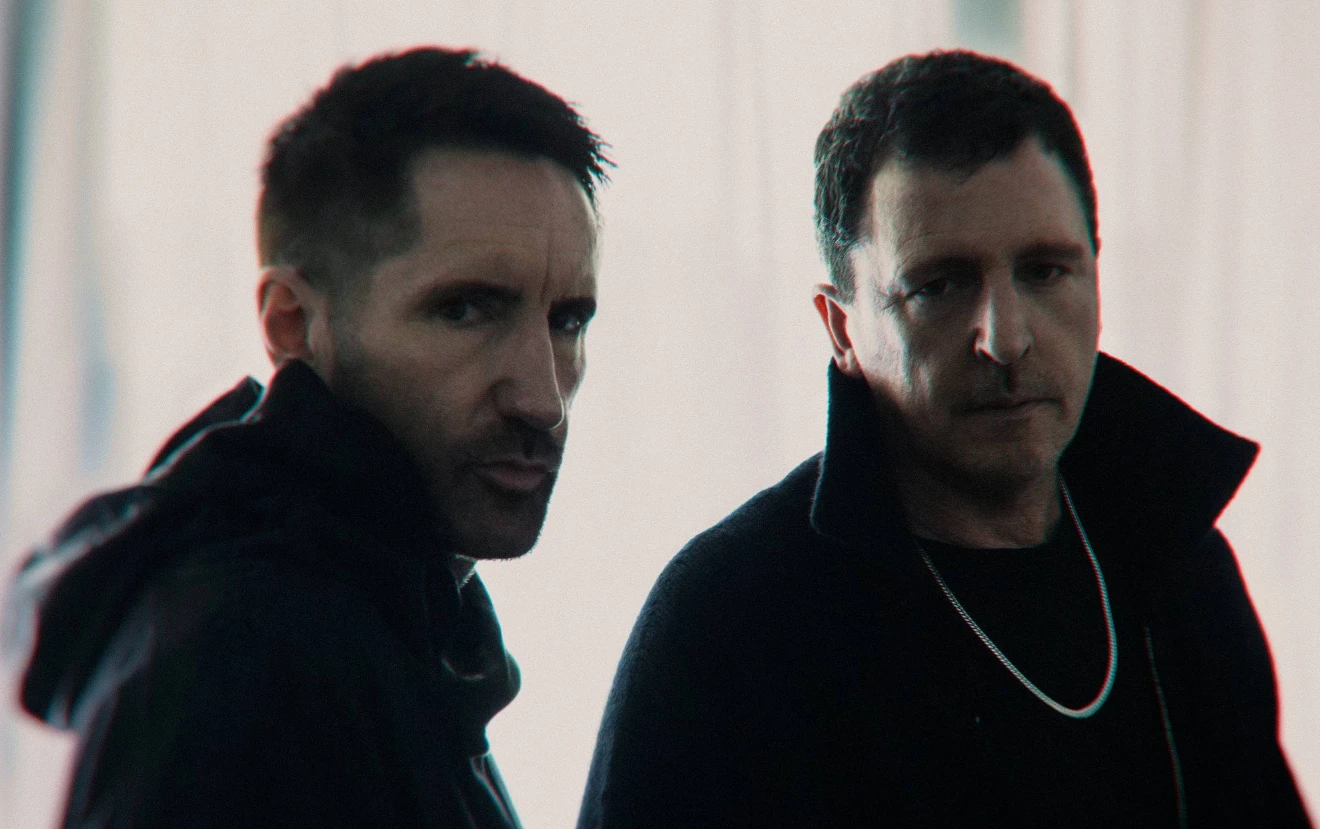Stu Ross - Misery Signals 'Distance Makes The Influence Grow Stronger'

After the long seven-year wait, Misery Signals have provided us with their fifth full-length album, Ultraviolet (our review here). Amongst the midst of anticipation, I grabbed guitarist Stu Ross to chat about the bands' original band members reforming, the album itself, the ups and downs of the COVID-19 pandemic and much more...
Hi Stu, Thank you for taking the time to talk. Congrats on your new album, Ultraviolet. Does this new album take off from where Misery Signals' previous album, Absent Light finishes or is this an entirely new chapter for the band?
I think in a way it is a new chapter for the band. With Absent Light, there were different members on that record. That is the only Misery Signals record that I never played on, or had anything to do with writing. Same goes with Jesse; he wasn't in the band at that point, so that was the last record that the band did with Karl. So it is definitely more of a new chapter than a continuation of that album.
What kind of impact does having all these years apart to develop as people and musicians, as well as to encounter different life experiences have when it comes to writing a record together?
There is a pretty big impact having that time away from one another, not only do you grow as a person and experience personality changes, I think as musicians we have all come a long way when it comes to the process of songwriting and creativity. Seven years apart has definitely had a pretty significant influence on the entire process. The last time we made a record with this lineup would have been in 2004.
[youtube https://www.youtube.com/watch?v=U9IslD1BZ2w&w=640&h=360]
For those who don't know, what was it that brought Misery Signals out of the long hiatus of recording?
So in 2014, we did a ten year anniversary for our record 'Of Malice and the Magnum Heart', and when we did that tour, it was kind of a gimmick for the band in a sense, but at the same time, it was the anniversary of an album that each of us feels strongly connected to. So we did that tour, and it was a great opportunity to get some older fans out and play a record that a lot of people have an attachment to. When we did that tour, everything just felt right; it was good to be playing with everybody again. I think that tour overall with a cathartic experience for the band. There was just a lot of things that we had never talked about—having that chance to get to spend time with each other again after having a handful of years away from each other to decompress made the process happen organically. It felt great playing those shows, and it felt like the right thing to do was to write a record with that line-up again.
Has having several lineup changes throughout the years ever created a sense of animosity within the band?
We are not without our small disputes, especially on creative levels. I think that after being a band for almost twenty years as well as being friends for nearly twenty years, tension can definitely build up from time to time. However, we are pretty good at communicating that to one another, especially after all the falling outs that we have had, in regards to Jesse, Kyle and myself leaving the band. Those sorts of emotions can arise, but we are good at getting through it. There is always going to be debates about who is right and who is wrong when it comes to creativity.
The current lineup's last record was in 2004, has everybody's creative differences changed? Is it much the same or does each individual have different visions and influences within their songwriting?
I think it is quite different than what it was when we wrote and recorded 'Of Malice, and the Magnum Heart' in 2004 Ryan and Brendan were leading the charge when it came to writing the songs, they are both outstanding musicians. Jesse, Kyle and I seemed to take a step back throughout that process, not that we weren't involved, but we were very trusting in Ryan and Brendan as they were better musicians songwriters at the time, so we collectively put our faith in their ideas and built of those. Whereas, fourteen years later, when recording this record, we have all come a long way. Each of us have been playing in other bands and writing songs the entire time. This time it was definitely more of a collective effort.
In regards to the album artwork, you decided to work with Sam Octigan, who has an abundance of experience with bands working within the heavy music community. What drew you to him?
It was actually myself who suggested we go with Sam. I saw the artwork for the king Nine record that he did, and it blew me away. Sam had also done some Merch designs for Comeback Kid, which is the other band I play in. I had always thought that his work was super unique. I knew that he would bring something fresh and different to the release because I feel like, in the past, our artwork has always been pretty cool, but I have never been super excited about it, it has always been secondary to the music. It was interesting because this time the artwork was done around six months before we even had a mix of the record. Sam is fantastic to work with, we sent him the lyrics and the concept for the album, and he came up with a few ideas. He sent us one thought that he wanted to run with, which we were supportive of, then he sent back the finished product, which is what you see on the cover of the album. It was pretty painless.
Do you feel he captured the amount of emotion contained within the songs in his artwork?
Yes, I think he did a great job. I can't say enough good things about Sam's finished piece or Sam. I think it is cool that a heavy band like Misery Signals can display a lot of positive vibes throughout the lyrics. Considering how dark of an album 'Absent Light' was, we wanted to create a contrast between the two, in some regard. We wanted something hopeful and positive without sounding corny and looking like a bunch of looney tunes. Sam is just a great artist; he did a perfect job of capturing what we were going for.
In my personal opinion, having nine tracks on an album seems like an unusual number of songs. Is this something that happened intentionally and if so, why?
(Laughs) You're not alone in that opinion. We had tracked thirteen or fourteen songs, but not everything was finished at that point, so we just tracked everything we had, then as we were going through the songs we whittled down what we felt fit best on the record. The way it was laid out is how it is in the final product, it just felt right and flowed. To throw another track in there just felt weird. We all agreed that nine tracks was unusual. The album still has thirty-five minutes of runtime, which is pretty standard for a short LP.
After seven years of waiting to put out the next record then to only hear nine songs seems like a bit of a tease, but it is what it is but who knows, we are not done yet. There will be more to come in good time.
With COVID-19 destroying communities around the world right now, what sort of obstacles has Misery Signals faced with the release of Ultraviolet?
In regards to the release of the album, we haven't faced any issues at all. People that have pre-ordered the record will get them on time as I assume they have already shipped. All the vinyl was pressed on time and is now going through the process of being sent out and delivered. That hasn't been where the challenges have presented themselves. In regards to touring in support of the record, that has obviously been an obstacle. We had tours booked from May through to July, which all just fell apart because we just can't play right now.
Is that disheartening for you?
Yes absolutely, it's a huge bummer. It is one of those things where we just have to take a step back and look at the bigger picture. This is happening on a global scale; there is a lot of terrible things happening right now. So not being able to play a concert for a new record isn't that big of a deal but at the same time, it is still a bummer, especially for someone like myself and the bass player in Misery Signals, who is the tour manager for my other band, Comeback Kid. He and I are basically on the road constantly. This is the first Summer in twenty years where I haven't been on tour, so it feels strange.
Does it give you comfort to know that it is not just your bands that are being affected, rather it is every band in the world?
For sure, it is funny that you ask that because the other day I was watching a Jimmy Fallon interview with Ice-T and he was talking about how he has to slow down and try to find different outlets to be creative while expressing how he is becoming increasingly frustrated. Then he said that he isn't the only one that has to stop and chill out. I sat there while drinking my coffee, thinking, 'Ice-T is right'. It resonated with me, if 'T' can do it, I can do it.
How have you managed to stay created throughout this time?
Mostly, I have just been writing music; it is pretty much how I spend a lot of my week. So basically just working on more Misery Signals music, as well as new music for Comeback Kid. I jam with some buddies every weekend, so we get to hit the rehearsal space tonight, drink some beer and play some music.
Do you have a favourite song on 'Ultraviolet'?
Yes, I do. My favourite song is the album opener, 'The Tempest'. Just mostly because it was a song that came together late in the writing process, we wrote that record over the course of four years, or so there was a lot of material that got changed or simply trashed. There were parts in that song that I kept on coming back to, trying to make them work. Eventually, I found an arrangement that worked. Once it was recorded and everything was tracked, hearing it again, I remember saying to our vocalist, Jesse, 'For better or worse, whatever peoples opinions of this song are, I don't care.' It is a song that I have been trying to write for fifteen years or so, and it finally felt right in the end. It has all of the signature Misery Signals styles in it, and it is just a well-rounded song.
[youtube https://www.youtube.com/watch?v=z8nGljoS_cY&w=640&h=360]
If there was anything you could tell fans before they go and listen to the record for the first time, what would that be?
I think a lot of people assume that just because Jesse is back in the band that we were going to try and write a record that sounds like 'Of Malice and Magnum Heart' part two. We didn't do that; there are sections of the album that have similarities to that record because Jesse is singing on it. I think it may just be the best Misery Signals record, but I guess I am kind of biased.
When touring resumes, how will Misery Signals express the themes of positive and the exploration of emotional depth that are in this album to a crowd in a live setting?
I think our attitudes project that vibe in the first place. Misery Signals has never been a band to go on stage and encourage violent moshing; it is a pretty inclusive vibe. Jesse is a very well-spoken frontman; he has a lot of good things to say, especially as we have gotten older his perspective of the world has changed, and he brings that to the stage every time he plays a show. I feel as if it would be pretty easily translated by who the band is and how we conduct ourselves in a live setting.
Interview by Adam Rice
Listen to Ultraviolet here

Misery Signals – Ultraviolet tracklisting
1. The Tempest
2. Sunlifter
3. River King
4. Through Vales of Blue Fire
5. Old Ghosts
6. The Fall
7. Redemption Key
8. Cascade Locks
9. Some Dreams
[youtube https://www.youtube.com/watch?v=sJSJ0vuuyp8&w=853&h=480]






